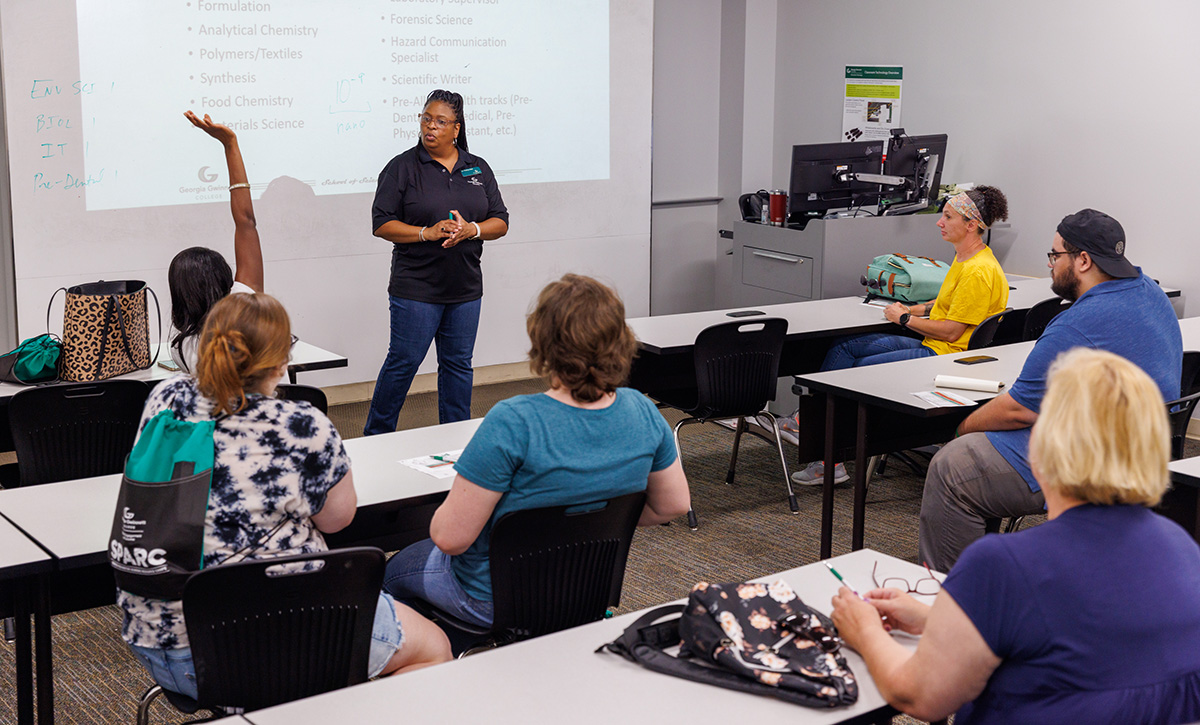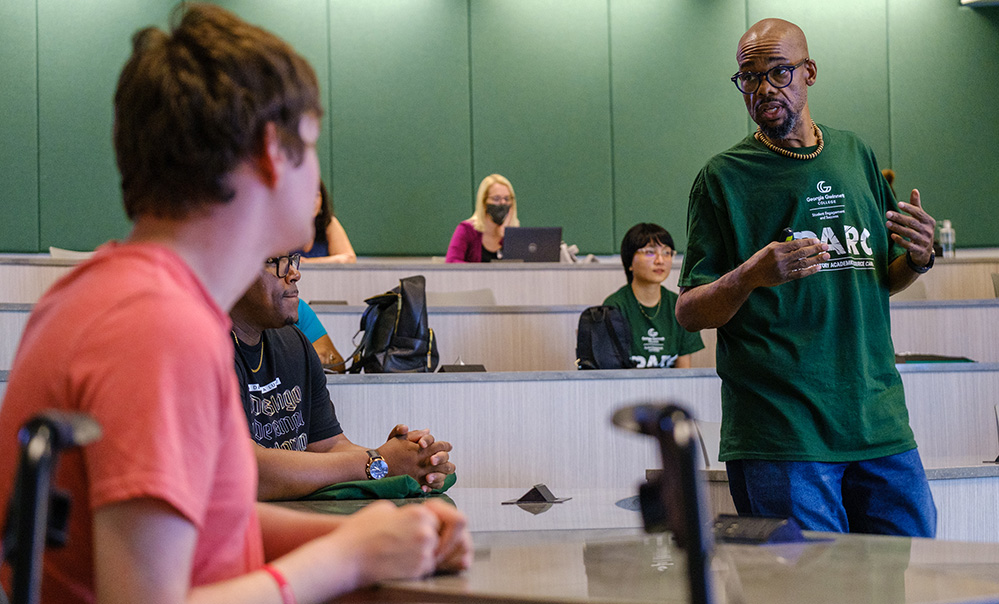How Universities Are Offering New Ways to Help Freshmen Upended by Pandemic
Some schools are providing extra help for incoming first-year students amid concerns the pandemic left high schoolers unprepared for higher studies

Get stories like this delivered straight to your inbox. Sign up for The 74 Newsletter
Some public colleges and universities in metro Atlanta are offering extra help this summer to prep first year students for the fall semester amid concerns that the pandemic left many high school students unprepared for higher education.
Georgia Gwinnett College is offering expanded orientation sessions to help students adjust to campus life. Kennesaw State University offers a two-week summer program so freshmen complete an economics class before the fall start.
The pandemic “left an indelible mark,” according to Sonny Perdue, the University System of Georgia’s recently named chancellor. “Many of our students lost ground during the pandemic, and we are seeing the consequences of that in our entering classes,” he told faculty in a May letter.
Michelle Rosemond, Georgia Gwinnett College’s vice president for student engagement and success, has read about falling test scores in high school English and math.
“What I’m seeing is the probability that the first-year experience will be tougher than normal,” she said.
Last school year’s scores on the state Milestones tests aren’t out yet, but the results from the 2020-21 school year were disappointing, The Atlanta Journal-Constitution reported last year.
They fell from 2018-19, the last time the tests were given before a temporary stay during the pandemic. The percentage of failing students rose by 2 to 9 points, varying by grade level and subject, with the largest declines in high schools. Fewer students than normal took the tests, which might have affected the overall results. Milestones scores from the last school year show students improving but still behind where they were prior to the pandemic.
This fall’s college freshmen were high school sophomores when classrooms closed for COVID-19 in spring 2020. Some, particularly students of color in big urban areas like metro Atlanta, continued to do school remotely into their junior and even senior years.
The situation seemed dire in 2020 when McKinsey & Company, the global consultant, surveyed nearly 2,100 U.S. high school seniors. Nearly a third wondered whether they were ready academically for college.
The University System of Georgia doesn’t have enough data yet to indicate whether the academic setbacks were as significant as some feared, but data suggests more students were quitting college after their freshman year.

In the four years prior to the pandemic, between 78.2% and 80.1% of freshmen came back after their first year. But the first-year retention rate for freshmen who entered in fall 2020 slipped to 74.6%.
Other evidence suggests a softer impact of COVID-19. At Georgia State, last fall’s freshman class had a high school grade-point average of 3.6, an increase of 0.03.
At Georgia Gwinnett College, the percentage of students withdrawing from all courses increased significantly but was a small proportion of overall enrollment.
The rate was about 2% prior to the pandemic. It rose to a high of 3.5% in fall 2020, dropping just over a percentage point by the following spring, said Rosemond. She doesn’t have the fall 2021 figures yet but is optimistic they have continued to fall or flatten.
Still, her college and others have been rolling out new programs to help students.
One launched at Georgia State last summer lets them retake one course they failed or withdrew from. The opportunity comes with coaching and advising.
At Kennesaw State, the First Flight program allows freshmen to take a two-credit economics class before their fall semester. The class is required for graduation, so taking it in advance would lighten their fall load and give them more time to focus on other courses, said Alex Lyon, director of new student programs there.
And Georgia Gwinnett College is offering expanded orientation sessions. The 2.5-hour sessions established last year — Summer Preparatory Academic Resource Camps, or SPARC — introduce students to advisers, faculty, tutors and peers, in hopes of building relationships they can tap if they need help.
Trent Prince, 30, joined the military after graduating from high school in Walton County. He was planning to enroll in college in fall 2020, but delayed that for a year due to the pandemic. Once enrolled at Georgia Gwinnett last year, he worried he had forgotten too much high school material and would be unable to keep pace with younger students.
Then, he attended a SPARC session last summer.
Not only did he connect socially with peers and professors, but faculty members were able to point out a different academic track that he said suited him better. Prince, who is majoring in English with a focus on education, now tutors Gwinnett County grade school students in reading and helps peers on campus with biology, his minor.
“Without that program, life would just be very different,” Prince said. “College would not be as great and as exciting as it is now because it gave me an opportunity to connect with other students, to reengage with the classroom, to connect with faculty and the professors, and to really get to know the school before I started.”
More Details
Last school year’s scores on the state Milestones tests aren’t out yet, but the results from the 2020-21 school year were disappointing, The Atlanta Journal-Constitution reported last year. They fell from 2018- 19, the last time the tests were given before a temporary stay during the pandemic.
The percentage of failing students rose by 2 to 9 points, varying by grade level and subject, with the largest declines in high schools.
Fewer students than normal took the tests, which might have affected the overall results.
This story comes from our partners at The Atlanta Journal-Constitution. For more on the news and events in metro-Atlanta and Georgia, visit AJC.com.
Get stories like these delivered straight to your inbox. Sign up for The 74 Newsletter

;)